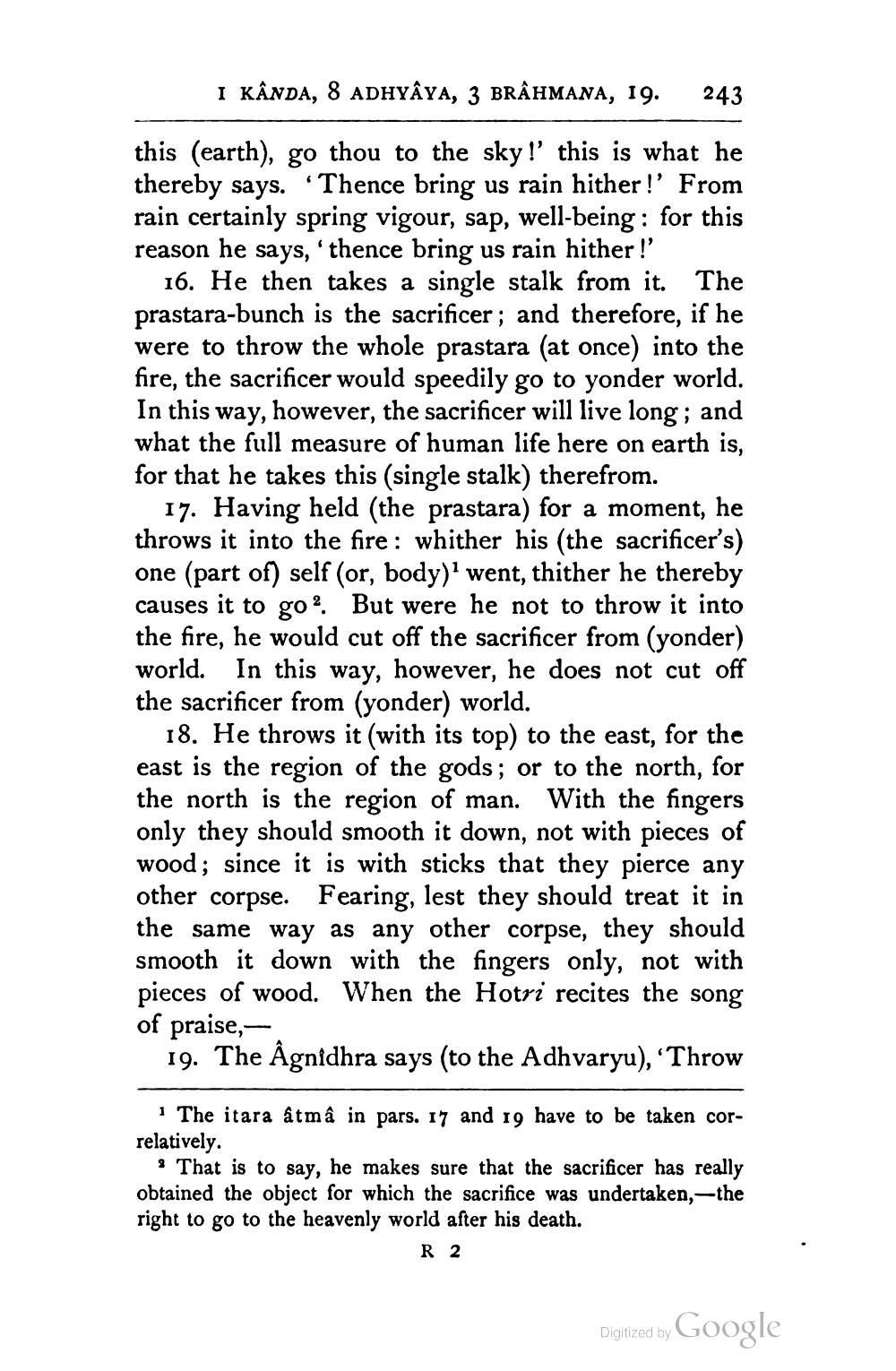________________
I KANDA, 8 ADHYAYA, 3 BRAHMANA, 19. 243
this (earth), go thou to the sky!' this is what he thereby says. Thence bring us rain hither!' From rain certainly spring vigour, sap, well-being: for this reason he says, 'thence bring us rain hither!'
16. He then takes a single stalk from it. The prastara-bunch is the sacrificer; and therefore, if he were to throw the whole prastara (at once) into the fire, the sacrificer would speedily go to yonder world. In this way, however, the sacrificer will live long; and what the full measure of human life here on earth is, for that he takes this (single stalk) therefrom.
17. Having held (the prastara) for a moment, he throws it into the fire: whither his (the sacrificer's) one (part of) self (or, body)1 went, thither he thereby causes it to go 2. But were he not to throw it into the fire, he would cut off the sacrificer from (yonder) world. In this way, however, he does not cut off the sacrificer from (yonder) world.
18. He throws it (with its top) to the east, for the east is the region of the gods; or to the north, for the north is the region of man. With the fingers only they should smooth it down, not with pieces of wood; since it is with sticks that they pierce any other corpse. Fearing, lest they should treat it in the same way as any other corpse, they should smooth it down with the fingers only, not with pieces of wood. When the Hotri recites the song of praise,
19. The Âgnidhra says (to the Adhvaryu), 'Throw
1 The itara âtmâ in pars. 17 and 19 have to be taken correlatively.
That is to say, he makes sure that the sacrificer has really obtained the object for which the sacrifice was undertaken,—the right to go to the heavenly world after his death.
R 2
Digitized by Google




